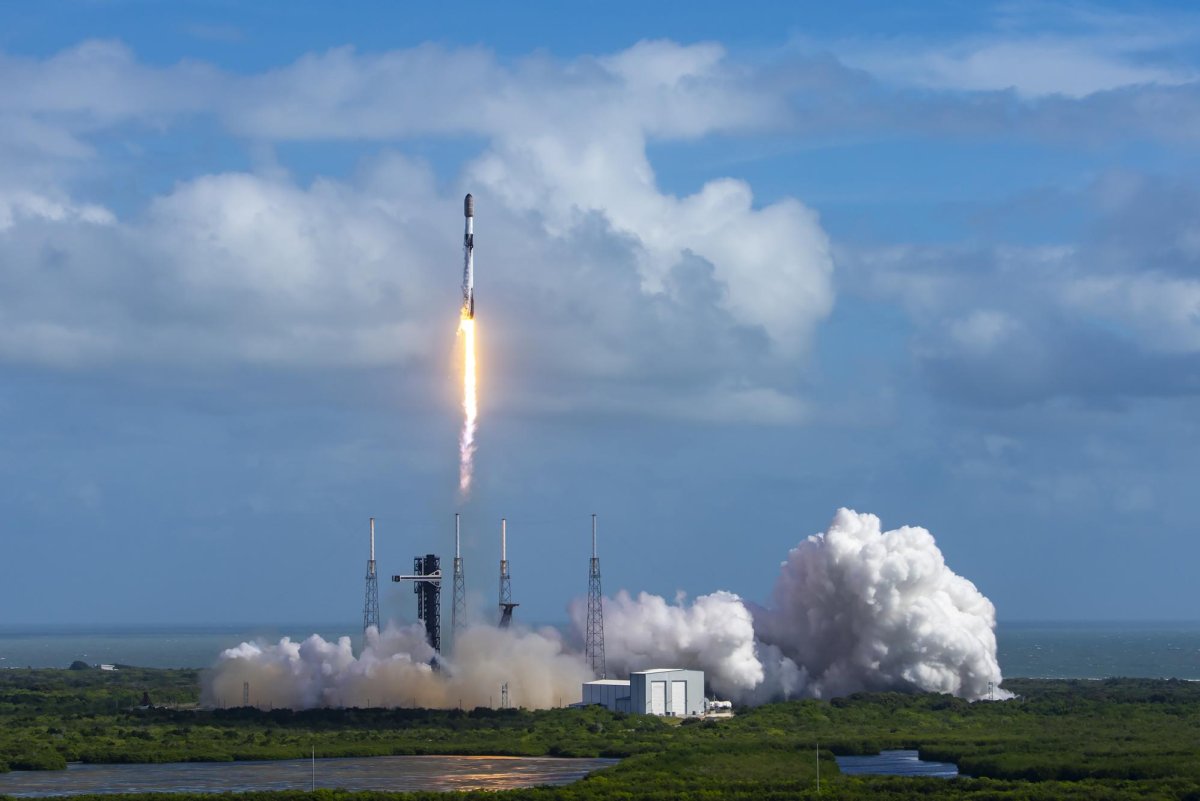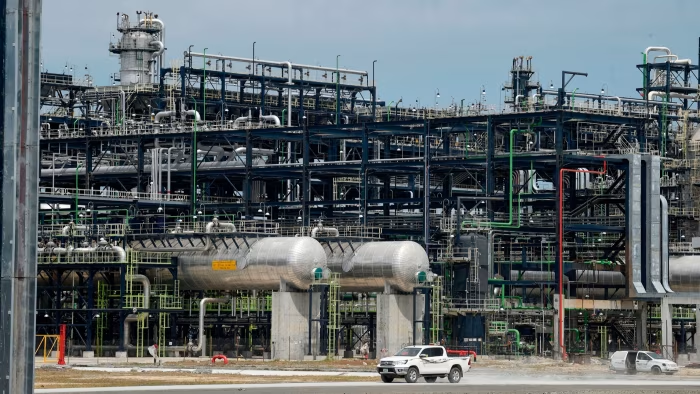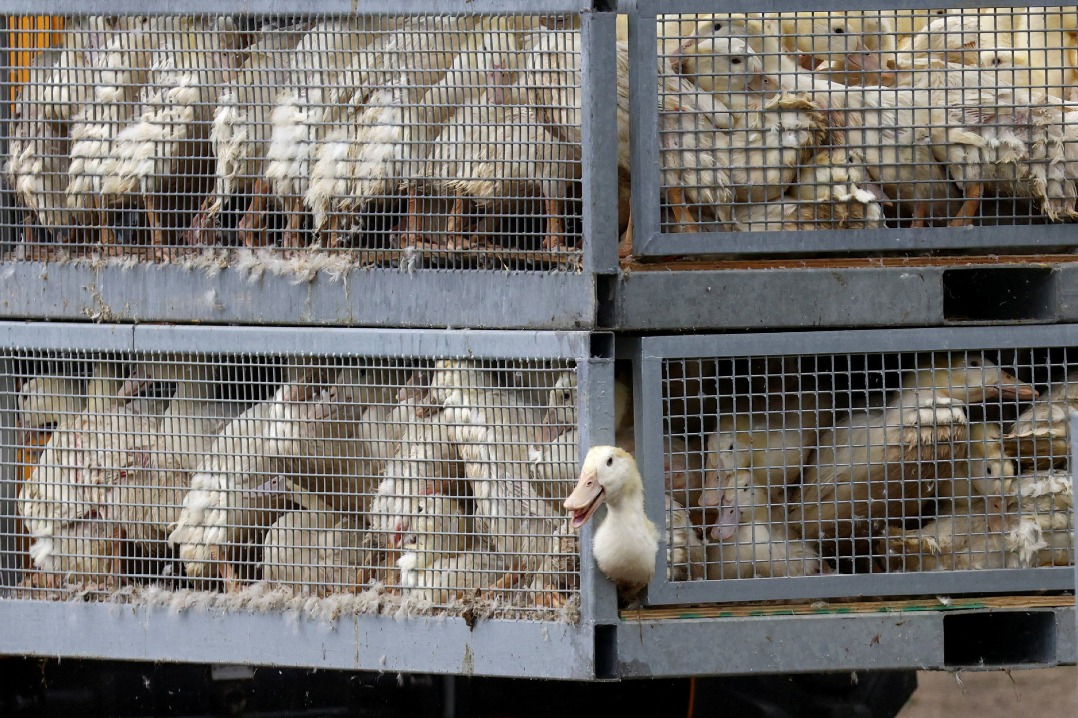Olubukola Ayodele/LinkedIn
Olubukola Ayodele, Breast Cancer Lead at University Hospitals of Leicester NHS Trust, shared a post on LinkedIn:
“A new analysis published in The ASCO…

Olubukola Ayodele/LinkedIn
Olubukola Ayodele, Breast Cancer Lead at University Hospitals of Leicester NHS Trust, shared a post on LinkedIn:
“A new analysis published in The ASCO…

Former New York Jets center Nick Mangold has died at 41 after battling kidney disease and awaiting a transplant
Former New York Jets center Nick Mangold…

Captain Micky van de Ven led from the front with two headers to inflict Everton’s first defeat at their new stadium as Tottenham moved into third with a 3-0 victory.
David Moyes’ side went from conceding no league goals from corners to two in the…

Oct. 26 (UPI) — SpaceX launched 28 satellites into low Earth orbit just after 11 a.m.. EDT Sunday from Cape Canaveral Space Force Station in Florida, adding to the company’s growing fleet of Starlink communications satellites.
It was SpaceX’s

Stay informed with free updates
Simply sign up to the Oil & Gas industry myFT Digest — delivered directly to your inbox.
Nigeria’s leading industrialist Aliko Dangote is planning to expand capacity at his group’s petroleum refinery to 1.4mn barrels per day and will sell shares in the business to help finance the expansion.
Dangote told the Financial Times he would sell up to a 10 per cent stake in the refinery “depending on what the Nigerian market can take” and is also seeking $5bn in financing from Afreximbank, the African trade bank.
The expansion, which the multi-billionaire industrialist announced in Lagos on Sunday, would make the refinery in Lagos, Nigeria’s commercial capital, rival Reliance Industries’ refinery at Jamnagar in India as the biggest in the world. Jamnagar says it has an output of 1.4mn barrels a day.
The plant, which has an existing capacity of 650,000 barrels per day, has yet to reach full throttle.
However, the plan reflected his confidence in the Nigerian economy and a response to rising regional demand, Dangote said, adding that it would help further reduce the continent’s dependence on imports.
“This expansion reflects our confidence in Nigeria’s future, our belief in Africa’s potential, and our commitment to building energy independence for our continent,” he said.
Dangote is the only African on the Forbes list of the 100 wealthiest people in the world, with an estimated net worth of $26bn.
He said the expansion would require 65,000 workers, most of whom would be Nigerian, and expected it to take three years.
The initial phase of the refinery took nearly a decade to construct from start to finish and cost about $20bn, and Dangote said he had learned lessons from the first phase to reduce the completion time of the second.
George Elombi, the new president of Afreximbank, said his institution was in talks with the Dangote group to provide $5bn in loans towards the expansion.
“We have agreed to look for the money so (the Dangote group) can double production, maximise certain production lines and thereby reduce the price of most of its products,” he told the Financial Times.
This was part of a wider strategy the bank has begun in order to encourage industrialisation and increase support across the continent for the processing of raw materials, he said.
Since it began producing diesel and aviation fuel, and gasoline in 2024, the Dangote group has shaken up the Nigerian oil market, which after years of mismanagement at state-owned refineries had become dependent on costly imports of refined products.
But it faced difficulties at the outset in securing enough oil from Nigeria’s national oil company NNPC, which owns a 7.2 per cent stake in the refinery.
The group sourced crude from around the world with cargoes from Angola, Brazil, Equatorial Guinea, Ghana and the USA to satisfy demand, but has reduced inflows recently in response to rising global prices.
At an Afreximbank event in Cairo on Saturday, Dangote said the refinery construction had been severely disrupted by the Covid-19 pandemic, but previous support from the African trade bank had helped see the project to completion.
“Without Afreximbank the Dangote refinery wouldn’t have been possible,” he said.

